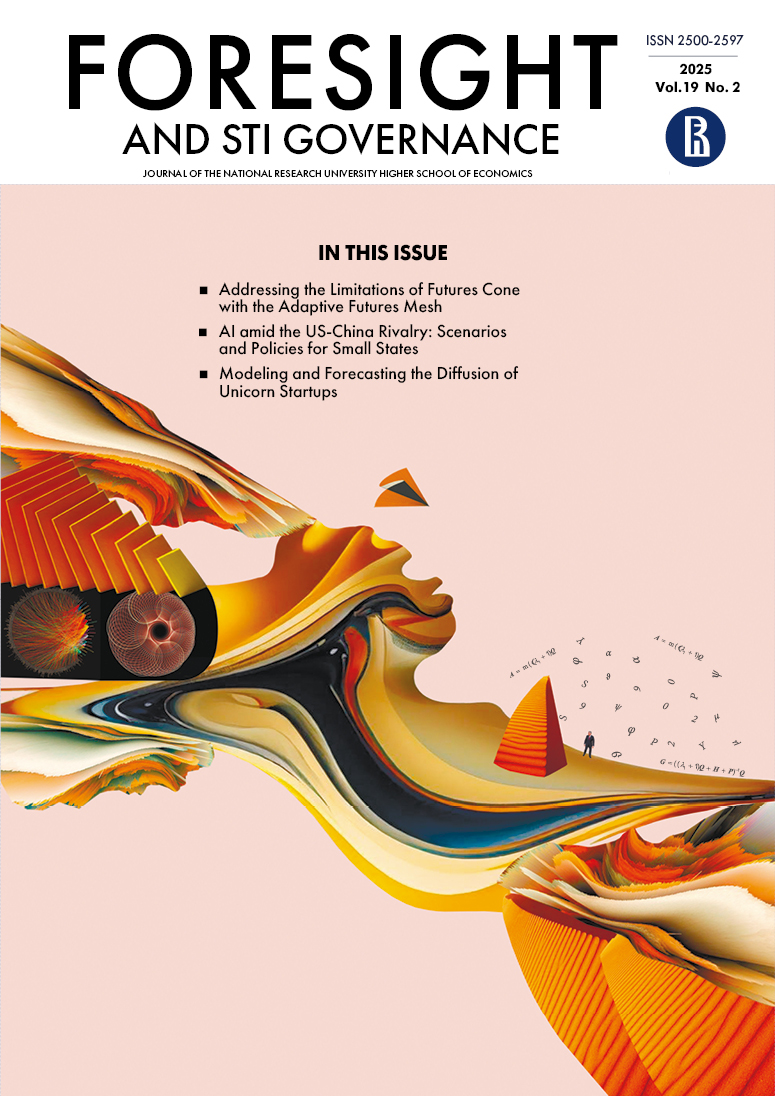Abstract
The analysis of patent trends reveals significant patterns that have the potential to drive technological advancements in specific domains, particularly by identifying emerging areas and research gaps. This study examines how the economic appropriation of research and development outcomes mirrors the dynamics of the innovation process and informs strategic planning, policy formulation, and innovation management. By conducting a detailed analysis of the economic appropriations made by public science and technology institutions within Brazil’s aerospace and defense sectors, we identify how these trends can inform proactive approaches to technological innovation. The institutions studied exhibit research and development and innovation dynamics that are finely tuned to the specific needs and trends of their technological fields, illustrating the increasing diversity of research and development interests and the complexity of the innovation ecosystems in which they operate. Ultimately, the success of innovation policies and strategies hinges on the ability to anticipate technological trends, strategically invest in high-potential areas, and efficiently transfer technologies to the productive sector. This ensures that institutions are well-positioned to respond quickly and effectively to technological changes and market opportunities, fostering sustainable development and technological progress.
References
Becz S., Pinto A., Zeidner L.E., Banaszuk A., Khire R., Reeve H.M. (2010) Design System for Managing Complexity in Aerospace Systems. Paper presented at the 13th AIAA/ISSMO Multidisciplinary Analysis and Optimization Conference, Fort Worth, TX AIAA, AIAA-2010-9223. https://doi.org/10.2514/6.2010-9223
Campbell R.S. (1983) Patent Trends as a Technological Forecasting Tool. World Patent Information, 5(3), 137–143. https://doi.org/10.1016/0172-2190(83)90134-5
Creswell J.W., Creswell J. D. (2009) Research design: Qualitative, quantitative, and mixed methods approaches (3rd. ed.), Thousand Oaks, CA: Sage.
Dodgson M., Gann D.M., Phillips N. (eds.) (2014) The Oxford Handbook of Innovation Management, Oxford: Oxford University Press.
Etzkowitz H., Zhou C. (2018) The Triple Helix: University—Industry—Government Innovation and Entrepreneurship (2nd ed.), New York: Routledge.
Fagerberg J., Srholec M., Verspagen B. (2009) Innovation and economic development (UNUMERIT Working Papers No. 032), Maastricht: UNU-MERIT.
Gil A.C. (2010) How to Develop Projects of Research (5th ed.), Sao Paulo: Atlas Press.
Kaminishi K., Muhamad A.K.B., Kyontani T., Miyake K., Kimura T., Haruyama S. (2014) A study of technology trends analysis using patent search systems. Journal of Technology Innovation and Sustainability, 5(2), 18–35.
Kim G., Bae J. (2017) A novel approach to forecast promising technology through patent analysis. Technological Forecasting & Social Change. vol 117, 228–237. https://doi.org/10.1016/j.techfore.2016.11.023
Matias-Pereira J. (2019) Manual de metodologia da pesquisa científica (4th ed.), Sao Paulo: Atlas Press.
Mazzucato M. (2013) The Entrepreneurial State: Debunking Public vs. Private Sector Myths, London; New York: Anthem Press.
Niemann H., Moehrle M.G., Frischikorn J. (2017) Use of a new patent text-mining and visualization method for identifying patenting patterns over time: Concept, method and test application. Technological Forecasting & Social Change, 115, 210–220. https://doi.org/10.1016/j.techfore.2016.10.004
Prodanov C.C., Freitas E.C. (2013) Methodology of Scientific Work: Methods and Techniques of Research and Academic Work (2nd ed.), Novo Hamburgo, RS: Feevale.
PMI (2021) A Guide to the Project Management Body of Knowledge (PMBOK) (7th ed.), Newtown Square, PA: Project Management Institute.
Rothwell R. (1994) Towards the fifth-generation innovation process. International Marketing Review, 11(1), 7–31. https://doi.org/10.1108/02651339410057491
Tidd J., Bessant J., Pavitt K. (2001) Managing innovation: Integrating technological market and organizational change, Chicester: Wiley.

This work is licensed under a Creative Commons Attribution 4.0 International License.

